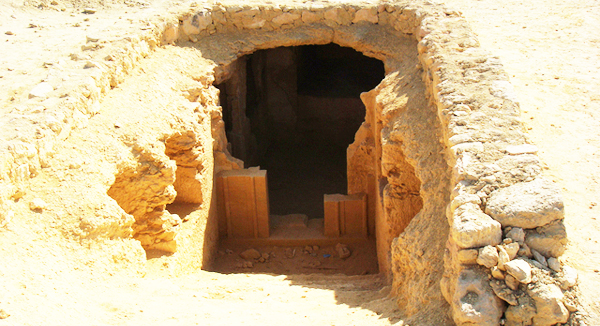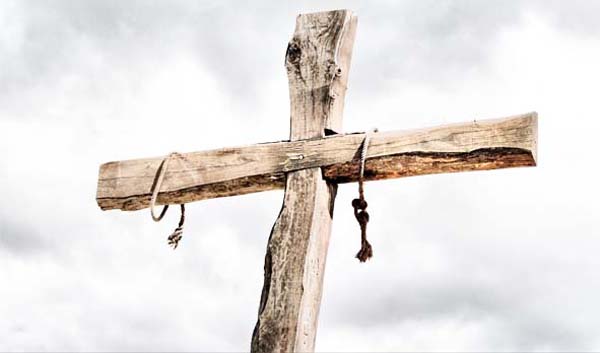For in one Spirit we were all baptized into one body—Jews or Greeks, slaves or free—and all were made to drink of one Spirit (1 Corinthians 12:13). In the middle of this famous chapter on spiritual gifts, Paul makes it clear that partaking of the Spirit of God is something that every Christian experiences. The physical baptism we experience in the church is a symbol of the spiritual baptism of every believer by the Spirit!
Exegesis
We Know an Idol Is Nothing. Or Do We?
We know that “an idol has no real existence” (1 Corinthians 8:4). Paul, while addressing an immediate problem related to Christian liberty, simultaneously addresses a vital overarching point regarding idolatry. Idols are nothing; they are not just false gods, they are no gods at all. Of course the material, physical stuff from which the idol is made is real, but the god it represents does not exist. There is no need to fear idol gods, and there is certainly no reason to worship them.
Such Were Some of You
Do you not know that the unrighteous will not inherit the kingdom of God? … And such were some of you. But you were washed, you were sanctified, you were justified in the name of the Lord Jesus Christ and by the Spirit of our God (1 Corinthians 6:9-11). Such were some of you. On one hand, what sweet words these are to believers! The church is not for perfect people but for sin-scarred, once-blind, still struggling people.
Overcoming Disagreement For God’s Glory
Now concerning our brother Apollos, I strongly urged him to visit you with the other brothers, but it was not at all his will to come now. He will come when he has opportunity (1 Corinthians 16:12). Even our very best plans often meet with significant snags. Many variables can conspire to derail our plans, but one in particular often proves a great help or hindrance in our efforts: people. Planning would be so easy if it weren’t for other people with other opinions! Pastoring, marriage, child-rearing, and evangelism would all be a cinch if you just didn’t have to
Jesus Says, “I Am the Door”
I am the door. If anyone enters by me, he will be saved and will go in and out and find pasture (John 10:9). It is easy and common to skip over this reference of Jesus to himself as the door and jump straight to him as the shepherd (also in this passage in John 10). But pause and consider that Jesus says he is not only the shepherd of his sheep but he is also the door. In other words, Jesus is not only the shepherd of the sheep, but he is also the way through which he leads
Be Careful How You Build
“According to the grace of God given to me, like a skilled master builder I laid a foundation, and someone else is building upon it. Let each one take care how he builds upon it“ (1 Corinthians 3:10). Paul emphasizes over and over again that his labors were “according to the grace of God.” In other words, we can only do what God enables us to do. We are only as strong or skillful or successful as God’s grace working in and through us. Have we been blessed to persevere in Christian service for several years or decades? We are
This Body Is Only the Seed
What you sow does not come to life unless it dies (1 Corinthians 15:36). Paul, speaking here in the context of the resurrection of the dead, compares our earthly body to a seed. The seed must be planted, and die, in order for it to eventually become the full-grown plant. Similarly, Paul goes on in the very next verse to insist, our earthly body is only the bare kernel of what our glorified body will be. This is a stunning analogy, with awesome implications for the afterlife!
How Can the Dead Be Raised?
But someone will ask, “How are the dead raised? With what kind of body do they come?” You foolish person! What you sow does not come to life unless it dies (1 Corinthians 15:35-36). Paul, in discussing the truth of the general resurrection of the dead, anticipates some possible queries and objections. Someone might ask, for instance, “How are the dead raised?” This is a good question! Christian, linger here and learn from the heretic.
The Eternal Implications of the Flood
He blotted out every living thing that was on the face of the ground … Only Noah was left, and those who were with him in the ark (Genesis 7:23). The worldwide Flood is sobering to consider. In Noah’s day, at a real point in time in actual history, every person on earth was drowned except the eight who were in the Ark. This is the greatest catastrophe in history, and no other event — tsunami, earthquake, hurricane, or volcanic eruption — even comes close. This was not a “natural” or normal kind of catastrophe.
Jesus, the Resurrection and Life
Jesus said to her, “I am the resurrection and the life. Whoever believes in me, though he die, yet shall he live, and everyone who lives and believes in me shall never die. Do you believe this?“ (John 11:25-26). The scene here is that Jesus’ friend Lazarus had just died, and now Jesus is speaking to Lazarus’ sister Martha. And there are some inescapable lessons to learn from this situation, and from Jesus’ response to it. First, death is a reality. Death is the end of every person (Ecclesiastes 7:2). Death is not unexpected. The manner of it may be
Christ for Us: the Core of the Gospel
For I delivered to you as of first importance what I also received: that Christ died for our sins in accordance with the Scriptures, that he was buried, that he was raised on the third day in accordance with the Scriptures (1 Corinthians 15:3-4). Although there is of course more to the fullness of Christian teaching than the brief creed the apostle Paul shares here, this what comes “of first importance”; this is the heart of the Christian gospel, the essential truths that separate Christians from non-Christians.
The Everlasting Implications of the Empty Tomb
“Therefore, my beloved brothers, be steadfast, immovable, always abounding in the work of the Lord, knowing that in the Lord your labor is not in vain” (1 Corinthians 15:58). After dedicating an entire chapter to the subject of the resurrection, Paul concludes with this word: “Therefore.” Based on the abundant proofs for the resurrection of Jesus Christ from the dead, and based on the truth that Christ is the firstfruits of what all believers will experience through him, and based on the fact that we shall all be changed from perishable to imperishable – therefore, beloved, be steadfast!
Christians Should Long For Giftedness
Pursue love, and earnestly desire the spiritual gifts… (1 Corinthians 14:1). Christians should desire giftedness. Although any spiritual gift is useless unless it is practiced in love (1 Corinthians 13:1-2), Paul exhorts the saints to desire the spiritual gifts. When was the last time you prayed for spiritual gifts? Spiritual gifts can only come from the Spirit, and so prayer is the best way to pursue them.
When I Am Weak, Then I Am Strong
But he said to me, “My grace is sufficient for you, for my power is made perfect in weakness.” Therefore I will boast all the more gladly of my weaknesses, so that the power of Christ may rest upon me. For the sake of Christ, then, I am content with weaknesses, insults, hardships, persecutions, and calamities. For when I am weak, then I am strong (2 Corinthians 12:9-10). After Paul fervently prayed for God to remove a particular trial from his life, he received an answer.
God’s Word Is the Ultimate Authority
I delivered to you as of first importance what I also received: that Christ died for our sins in accordance with the Scriptures, that he was buried, that he was raised on the third day in accordance with the Scriptures (1 Corinthians 15:3-4). Notice that Paul couches the amazing Christian claim that “Christ died for our sins” in both Scriptural and historical language: “in accordance with the scriptures.”














